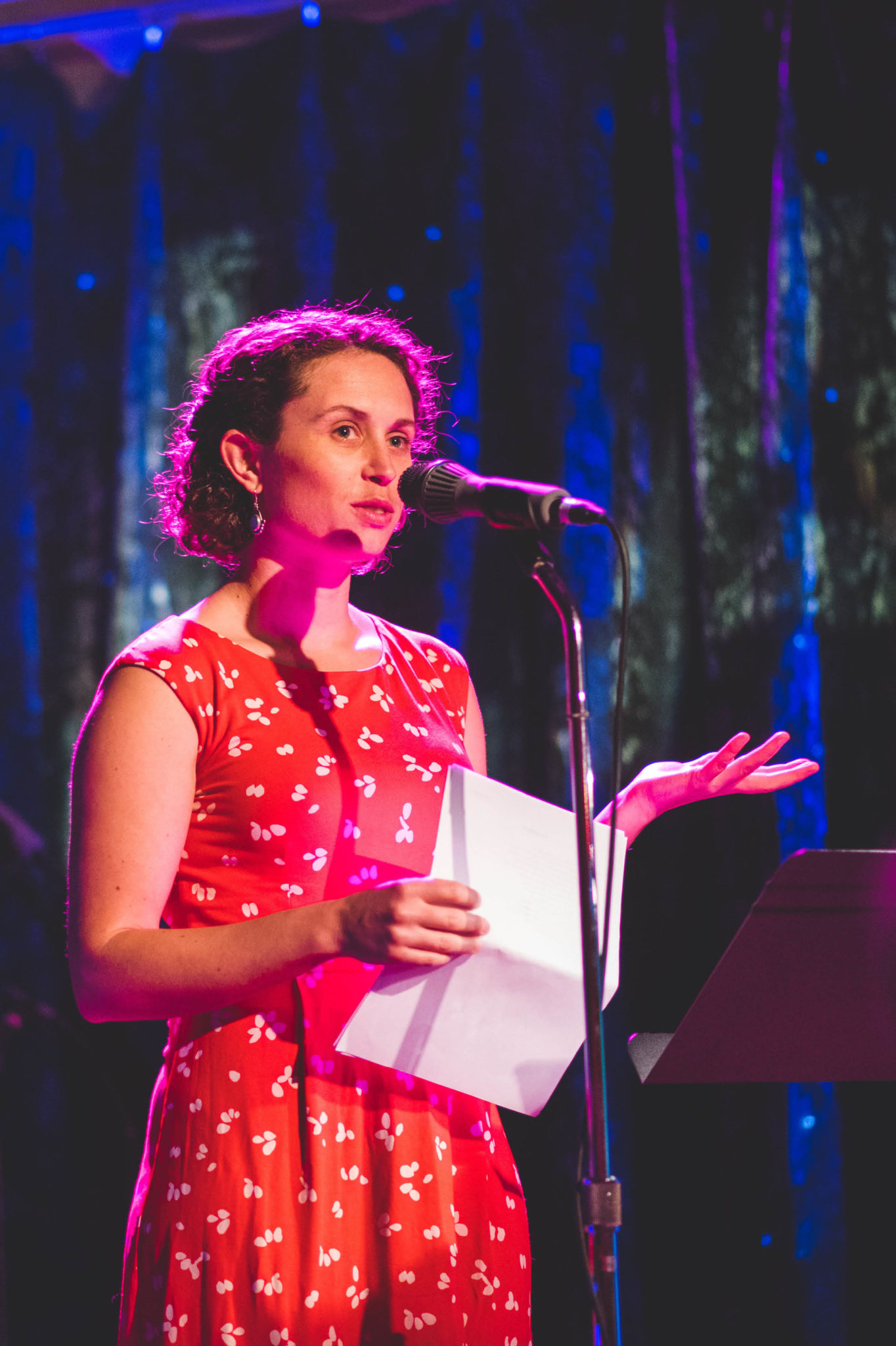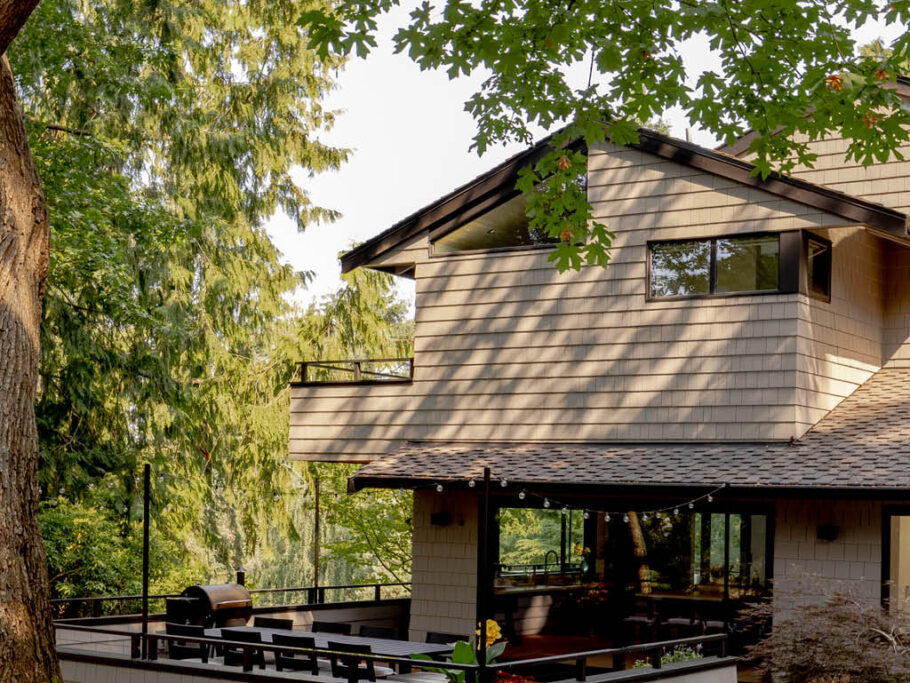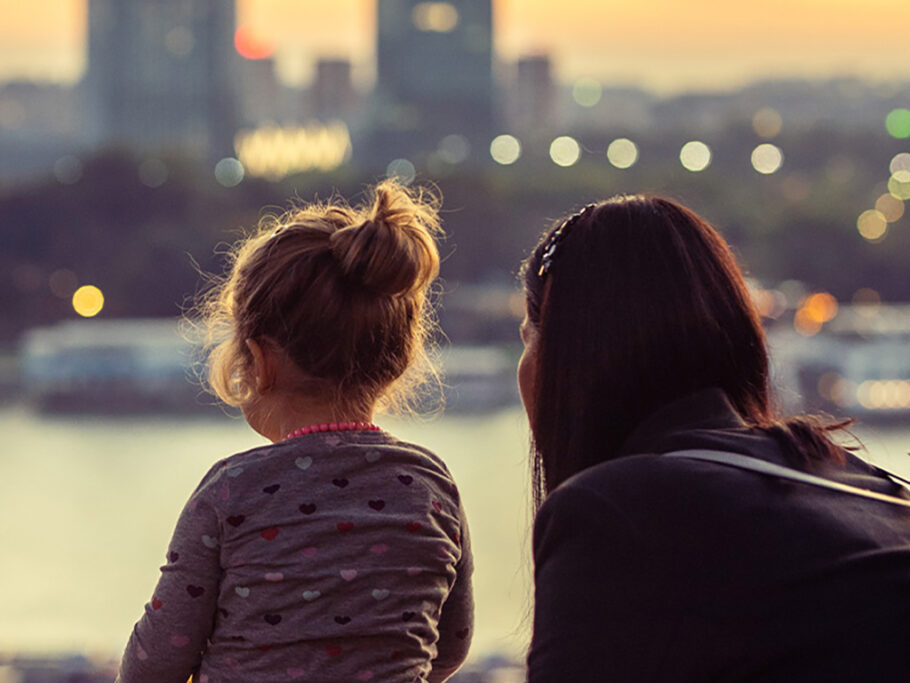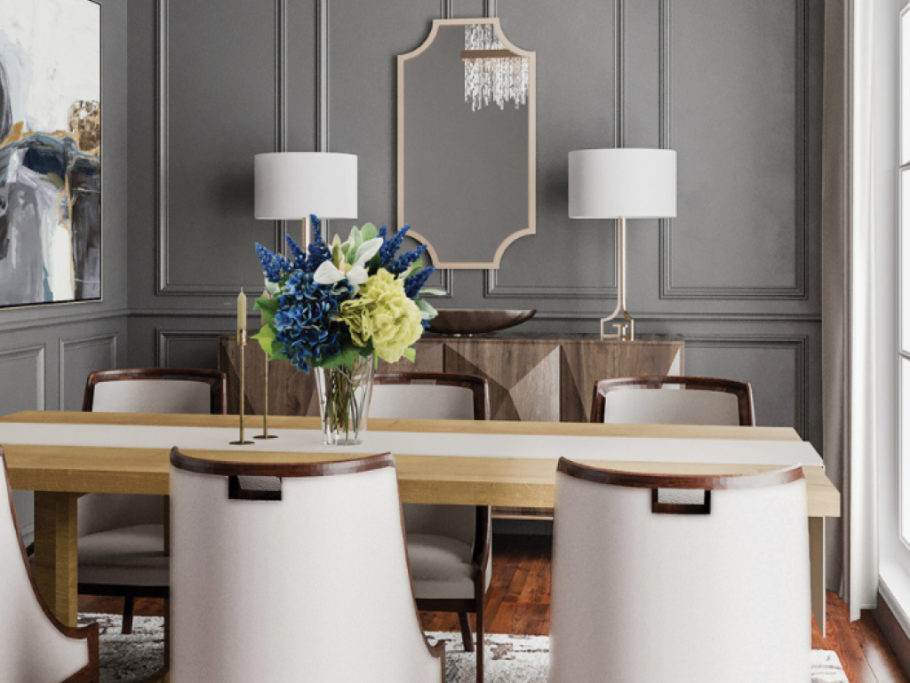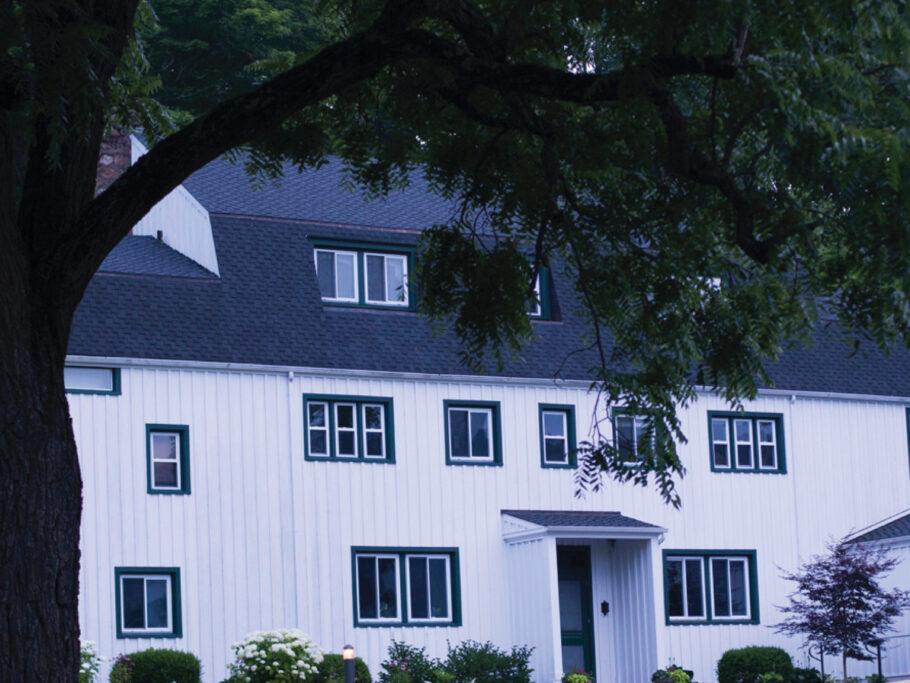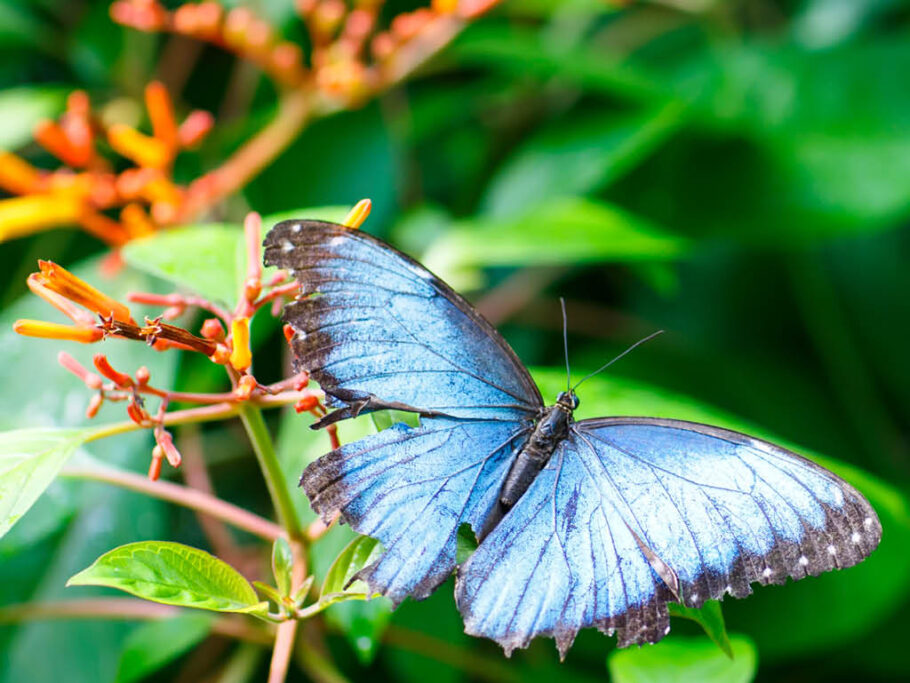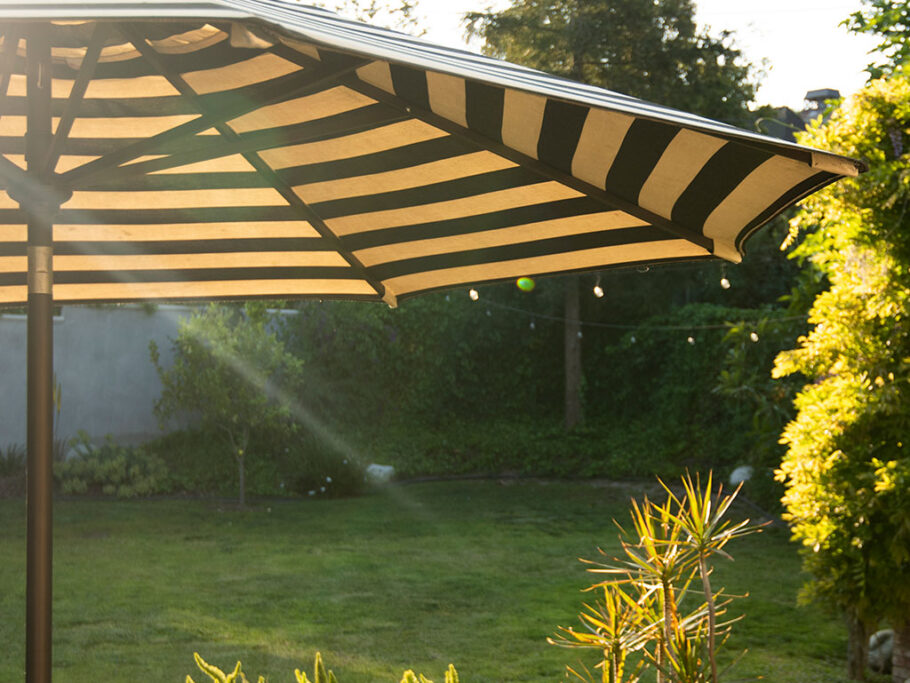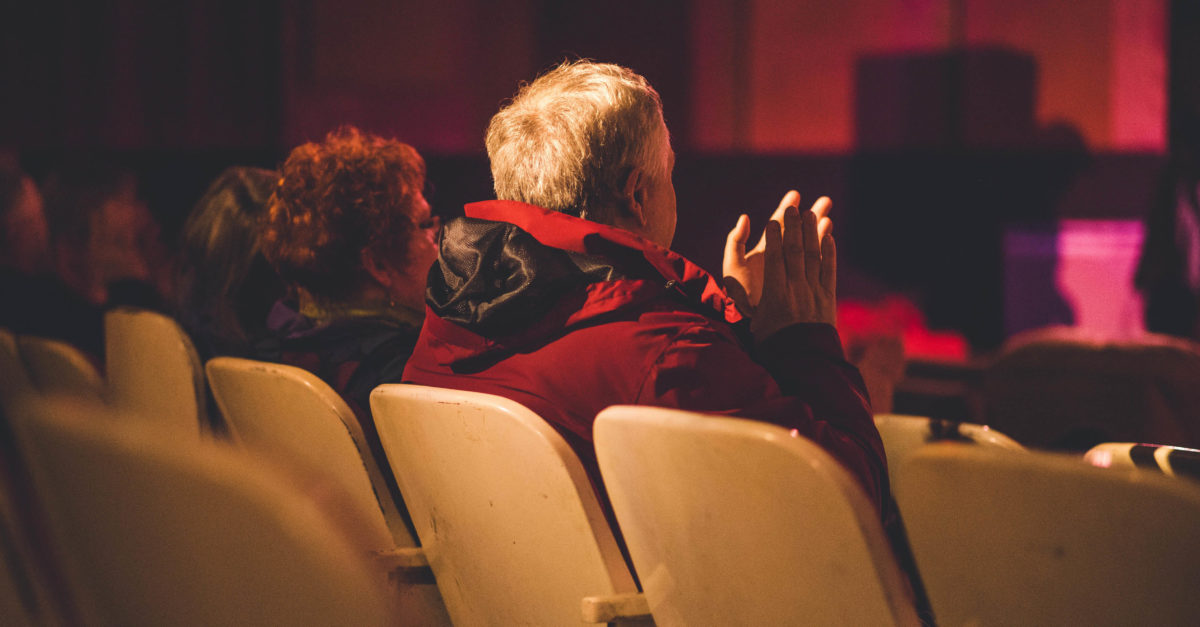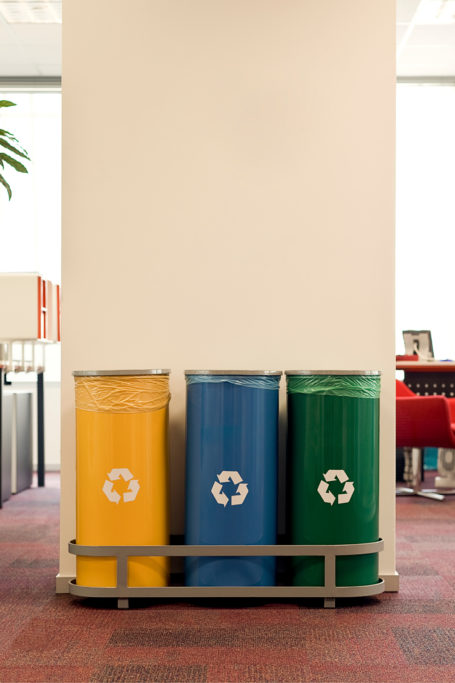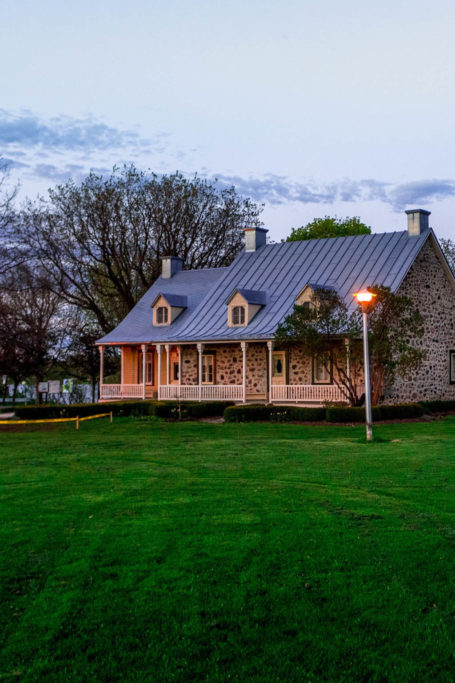Hooked on Poetry
In 1997, Alaska commercial fisherman Jon Broderick had an idea. He’d been reading poems penned by commercial fishermen in the Alaska Fisherman’s Journal for years. Alongside the fishery news one would expect, these poems offered an essential look at the art of fishing. What would happen, Broderick wondered, if a group of fishers gathered to share their poems, stories, and songs?
That winter, Broderick invited forty known fisherpoets from Alaska and the Pacific Northwest to gather in Astoria, Oregon. Thirty-nine agreed to the trip, and in February 1998 the first-ever FisherPoets Gathering came to pass—with nearly two hundred people in attendance. Of his organizing, Broderick says, “I take credit only for making the first phone call because I never met anyone who didn’t think it was a great idea.”
Photography by Shelley Rose Photography
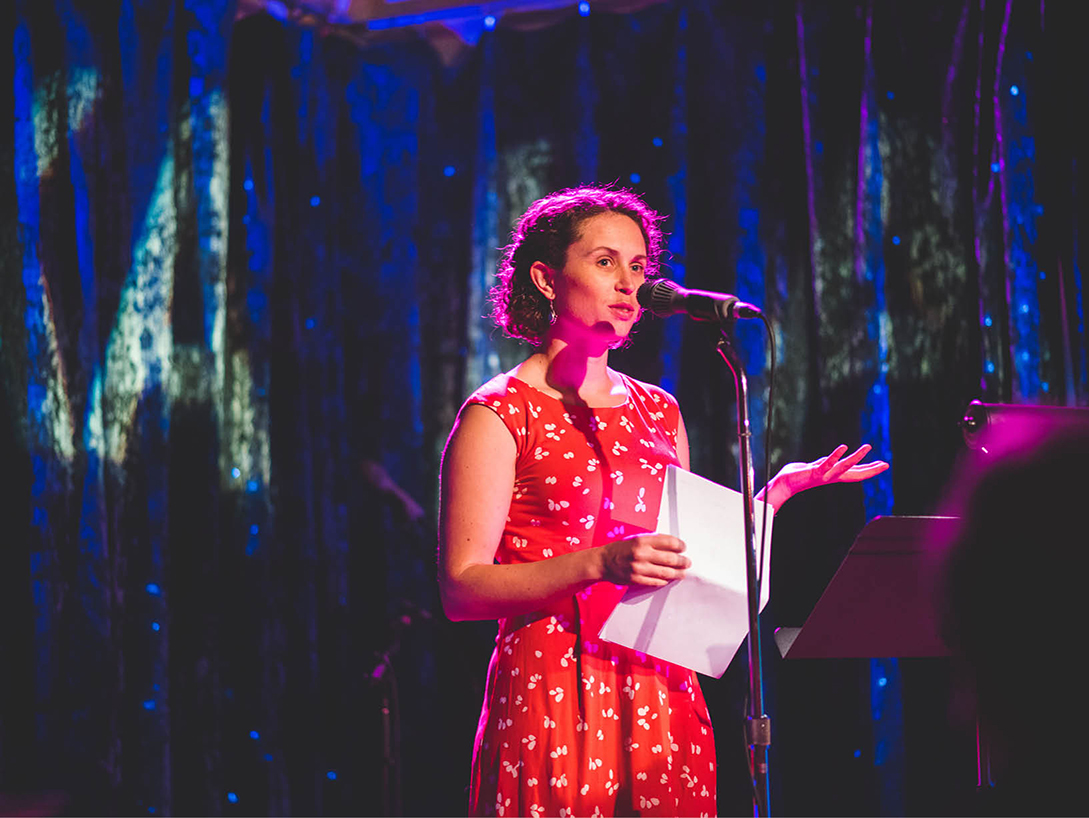
Since then, the FisherPoets Gathering hasn’t lost an ounce of its momentum. The event has grown to include, according to its website, “nearly a hundred poets, songwriters, and storytellers from both the west and east coasts’ commercial fishing communities.” They perform in theaters, art galleries, breweries, and delightfully grungy dives in downtown Astoria
for two nights on the last weekend of February each year.
The Gathering has been featured in the New York Times, Smithsonian Magazine, and the Wall Street Journal and on NBC, NPR, and the BBC. Excitement for the event is contagious enough that it’s spawned smaller gatherings across the country, and yet Astoria’s poetic celebration of commercial fishing remains the “top boat” in the fleet.
THE TOWN
Just under a two-hour drive from Portland, Astoria is not quite on the coast, but it sits on the banks of the Columbia River, where big ships and a few fishing boats still come and go. The Lewis and Clark expedition wintered here in 1805, and the Pacific Fur Company established Astoria as the first American settlement west of the Rockies in 1811.
Astoria’s boom-and-bust logging and fishing industries have given it a rugged feel, accented by Victorian homes and fine brick buildings. Due to environmental and economic reasons, these activities peaked and declined in the late twentieth century. Since then, Astoria has sought to redefine itself as a place with authentic, salty roots, a working waterfront, and a boutique hospitality industry.
Today, Astoria has no shortage of destinations for a full range of budgets. An excellent midrange trip includes an overnight at the Astoria Riverwalk Inn, a hearty brunch at Blue Scorcher Bakery & Cafe, an afternoon trek up to the Astoria Column, a stroll through the Imogen Gallery, late afternoon beers at Buoy Beer Company, and a casual dinner of fish and chips at the fisherman-owned, locally sourced South Bay Wild Fish House.
Photography by Shelley Rose Photography
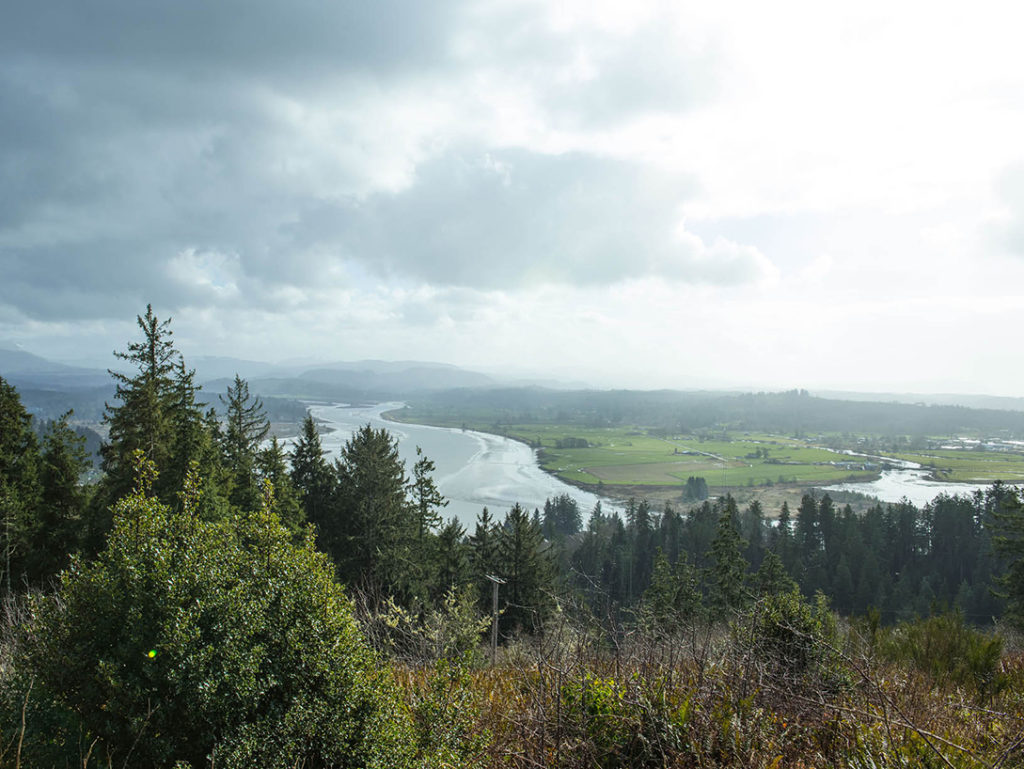
THE EVENT
One of the many charms of the Gathering is that it’s not about the money—and it never has been. In the early years, Broderick turned down sponsorship from a major media company and instead focused on community. Broderick says, “There are a lot of festivals that are designed to sell [stuff]—their art, their wine, their jewelry. It’s never been our goal to do anything other than celebrate the commercial fishing community. We make it fun for the people who come participate and also for the people who organize.”
After more than two decades of gatherings, Broderick is still captain of the FisherPoets ship. Though he explained clearly that he has lots of help, he’s assisted only by a crew of devoted volunteers.
For attendees, just twenty dollars buys access to a weekend of daytime workshops and evening poetry readings. In past years, workshop topics have included poetry writing, environmental activism, gyotaku fish printing (a traditional Japanese method of printing fish), women working in the fisheries, knot tying, and the history of shipwrecks.
The evening readings are also anything but ordinary. Between 5:00 p.m. and 10:00 p.m. on both Friday and Saturday night, seven venues concurrently offer up fifteen-minute sets from fisherpoets young and old, male and female. At the end of the third set, there’s a fifteen-minute break for mingling, ordering drinks and food, and walking to another venue. It’s poetry—but pub-crawl style.
Photography by Shelley Rose Photography
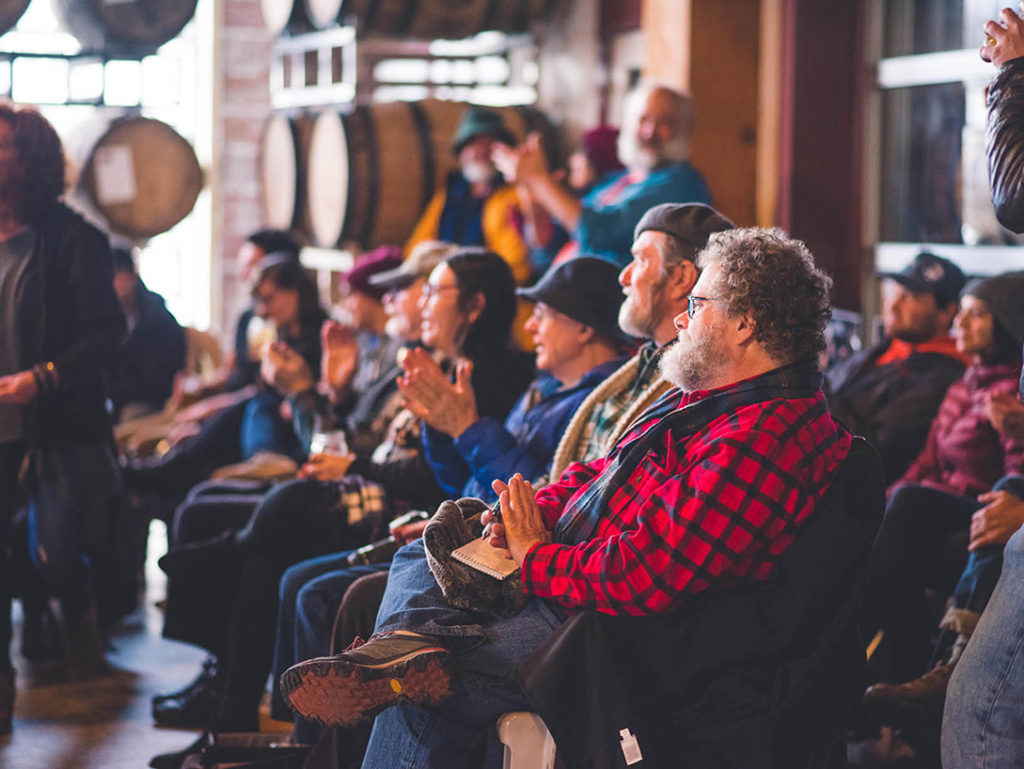
Venues change from year to year, but Astoria Brewing Company (formerly the Wet Dog Café) is a longtime favorite. The Wet Dog Café hosted the very first FisherPoets Gathering, and the present-day venue offers a fun, boisterous atmosphere and quality beer.
The Voodoo Room and the Liberty Theatre are two venues that exemplify Astoria’s gritty past—and artsy present. The Voodoo Room is a corner dive with a stamp-sized stage. Dark, windowless, and filled with nonsensical neon, the Voodoo Room is standing room only during the Gathering. If you’re lucky enough to snag a table, order a pizza and a couple of hand-mixed cocktails. Then clap, cheer, and stomp through a rowdy evening of fisherpoetry.
In contrast, the Liberty Theatre offers a more refined poetic atmosphere. The theater was built in 1925 and restored in 2006. It was placed on the National Register of Historic Places in 1984, and its baroque architecture is complemented by twelve mural-style, oil-on-canvas paintings by local artist Joseph Knowles. The Liberty is where to go if you want to fully focus on each poetic word as it lofts through the gold-lighted, high-ceilinged theater.
THE PEOPLE
The one requirement to perform at the FisherPoets Gathering: having worked in a commercial fishery. These are fishers who write, not writers who fish, and they are truly talented at bringing the authentic joys, dangers, dreams, and sorrows of a life at sea to the page and stage.Rob Seitz has spent over thirty years fishing in Alaska, California, and Oregon. Today, he owns and operates South Bay Wild Fish House as well as the fishing vessel that keeps it stocked with fresh fish. As a fisherpoet, he’s well-reputed for his witty rhymes and straight-faced delivery of poems that make the whole house rock with laughter. His poem “Family Dynamic” asserts:
When I get on the boat,
and I point her out to sea,
I always remind the crew
this ain’t no democracy.
I don’t want no misbehaving, and don’t ya give me any lip.
‘Cause this here fishing vessel is a dictator-ship.
…
But back on land
all my authority is lost.
It’s just like my kids say,
‘At home mommy is the boss.’
Photography by Shelley Rose Photography
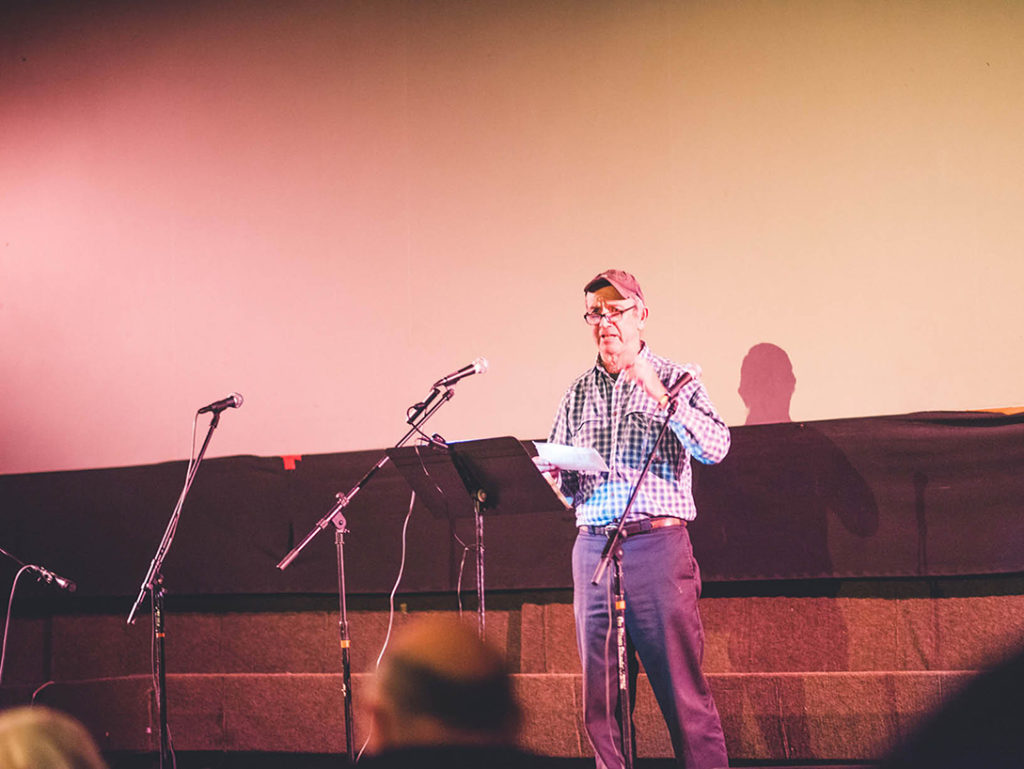
Poetic style ranges widely at the event. Another crowd favorite is Joel Brady-Power, who first went to sea aboard his parents’ salmon troller when he was two weeks old. He tackles difficult topics in long, slam-style poems. But the FisherPoets Gathering is not about prestige or prizes. More than anything, it’s about a deep sense of community that infuses every reading and every part of the festival. Fellow poets pack venues and cheer for fishers reading their first-ever poems, just as they cheer for headliners like Hughes, Starck, Dixon, and Seitz.
Even the tourists are generously welcomed. If you attend the Gathering, more likely than not some fisherperson will chat you up and become a great new friend. Astoria’s FisherPoets Gathering gives you the sense that anything’s possible—so long as you have community.
For more info, visit fisherpoets.org
